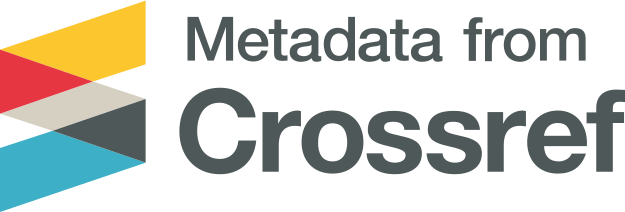Ompangan as an Accounting System: The Practice of Debts and Grants in Madura Culture
DOI:
https://doi.org/10.35838/jrap.2024.011.02.24Keywords:
Debts, Grants, Investment, Ompangan Tradition, SavingAbstract
Purpose: This study was conducted to find out the implementation of the tradition of ompangan and its relationship with sharia accounting principles that occurred in Panglegur Village, Tlanakan District, Pamekasan Regency.
Methodology: This study uses a qualitative descriptive type and an ethnographic approach. Data collection techniques are in the form of observation, interviews, and documentation, with triangulation techniques.
Findings: The results of the study stated that the tradition of the ompangan still exists among the Panglegur community, the ompangan tradition has the purpose of ta'awun/help, the existence of a simple bookkeeping system in the ompangan tradition has consequences for the return of debts and receivables in the future and has an impact on a person's spikology because of the burden of repayment in the future.
Implication: The shift in values in the tradition of the ompangan whose original nature is ta'awun / please help which should be preserved, now needs to be straightened out and understood that the original purpose of the ompangan tradition has the main purpose of helping each other or easing the burden of the owner of the wish and does not consider the ompangan tradition as debts that must be returned. There is a need for the role of community leaders to provide a better understanding related to the tradition of ompangan, so that the community realizes that the tradition of ompangan is a tradition of helping each other.
Originality: This study specifically examines the tradition of ompangan from the perspective of accounting, recording in the tradition of remittances, the community's perspective on the tradition of ompangan as a practice of debts and grants, savings, and time value of money on money and goods in the ompangan tradition.
Downloads
References
Amane, A. P. O., Kertati, I., Hastuti, D., Shodiq, L. J., & Ridho'i, M. (2023). Metode Penelitian Kualitatif: Persperktif bidang ilmu Sosial. PT. Sonpedia Publishing Indonesia.
Ayu. (1 September 2024). Masyarakat Panglegur, Wawancara Langsung.
Harisah, H., & Al Masyhudi, M. K. (2022). Praktik Hutang Piutang Dalam Tradisi Ompangan Pada Walimatul "Ursy perspektif Hukum Ekonomi Syari’ah di Desa Sentol Kecamatan Pademawu Kabupaten Pamekasan. Syar’ie : Jurnal Pemikiran Ekonomi Islam, 5(2), 137-145. https://doi.org/10.51476/syarie.v5i2.387
Has. (8 September 2024). Masyarakat Panglegur, Wawancara Langsung.
Herel. (10 September 2024). Masyarakat Panglegur, Wawancara.
Hotimah, H., Baihaki, Ach., & Zakhra, A. (2023). Studi Etnografi Pembayaran Ompangan Hajatan Pernikahan di Desa Batukerbuy Pamekasan. Journal of Accounting and Financial Issue (JAFIS), 4(1), 1-17. https://doi.org/10.24929/jafis.v4i1.2326
Johan, & Albi. (2018). Metode penelitian kualitatif. CV Jejak.
Kiptiyeh. (5 September 2024). Masyarakat Panglegur, Wawancara Langsung.
Misnadhi. (2 September 2024). Masyarakat Panglegur, Wawancara Langsung.
Mubarok, M., Suhendra, A., & Noviana, A. (2020). Tradisi Sumbangan Dalam Pernikahan Perspektif Hukum Islam. Jurnal Kajian Hukum Islam, 5(2), 103-115.
Nur Asiyah. (6 September 2024). Masyarakat Panglegur, Wawancara Langsung.
Pranomo, P. (2007). Gandakan Uang dengan Prinsip Time Value of Money. PT Elex Media Komputindo.
Putri. (9 September 2024). Masyarakat Panglegur, Wawancara Langsung.
Rachmawati, S. A., & Anwar, Moch. K. (2022). Budaya dan Tradisi Buwuh sebagai Hutang Piutang dalam Adat Pernikahan di Kelurahan Rangkah, Kota Surabaya. Jurnal Ekonomika dan Bisnis Islam, 4(3), 69-83. https://doi.org/10.26740/jekobi.v4n3.p69-83
Ramadhania, R. (2021). Akuntansi Antropologi: Ritus Pernikahan Jawa Dengan Pembukuan Untuk Nilai Kemasyarakatan. Oetoesan-Hindia: Telaah Pemikiran Kebangsaan, 3(1), 30-34. https://doi.org/10.34199/oh.v3i1.49
Samsiyeh. (30 Agustus 2024). Masyarakat Panglegur, Wawancara Langsung.
Saputri, E. D., & Ashari, M. H. (2019). Tradisi Buwuh Dalam Perspektif Akuntansi Piutang dan Hibah di Kecamatan Lowokwaru Kota Malang. PRIVE: Jurnal Riset Akuntansi Dan Keuangan, 2(1), 16-25.
Sari, D. A. (2020). Tradisi Tompangan Dalam Perspektif Akuntansi. Ristansi: Riset Akuntansi, 1(1), 54-64. https://doi.org/10.32815/ristansi.v1i1.348
Suhardi, S., Muzammil, A. R. U., & Syahrani, A. (2022). Peristilahan Adat Pernikahan Pada Masyarakat Madura Di Wajok Hilir, Kabupaten Mempawah. Jurnal Pendidikan dan Pembelajaran Khatulistiwa (JPPK), 11(1), 560-569. https://doi.org/10.26418/jppk.v11i1.52272
Thalib, M. A. (2022). Motoliango Sebagai Wujud Akuntansi di Upacara Tolobalango Gorontalo. Jurnal Bisnis dan Akuntansi, 24(1), 27-48. https://doi.org/10.34208/jba.v24i1.1051
Widianti, W., Kharisma, N. A., Fariza, A., Ginting, R., & Yunita, K. (2023). Memaknai Tradisi Belale’ dalam Perspektif Akuntansi Hutang Piutang: Sebuah Kajian Etnografi. KEUNIS, 11(2), 138-145. https://doi.org/10.32497/keunis.v11i2.4431
Yeni. (7 September 2024). Masyarakat Panglegur, Wawancara Langsung.
Zain, A. A., Amaliah, T. H., & Badu, R. S. (2024). Akuntansi dalam Tradisi Hileiya. Selat Media.
Downloads
Published
Issue
Section
License
Authors who publish with this journal agree to the following terms:
- Authors retain copyright and grant the journal right of first publication with the work simultaneously licensed under a Creative Commons Attribution-ShareAlike 4.0 International License that allows others to share the work with an acknowledgement of the works authorship and initial publication in this journal.
- Authors are able to enter into separate, additional contractual arrangements for the non-exclusive distribution of the journals published version of the work (e.g., post it to an institutional repository or publish it in a book), with an acknowledgement of its initial publication in this journal.
- Authors are permitted and encouraged to post their work online (e.g., in institutional repositories or on their website) prior to and during the submission process, as it can lead to productive exchanges, as well as earlier and greater citation of published work (See The Effect of Open Access).














